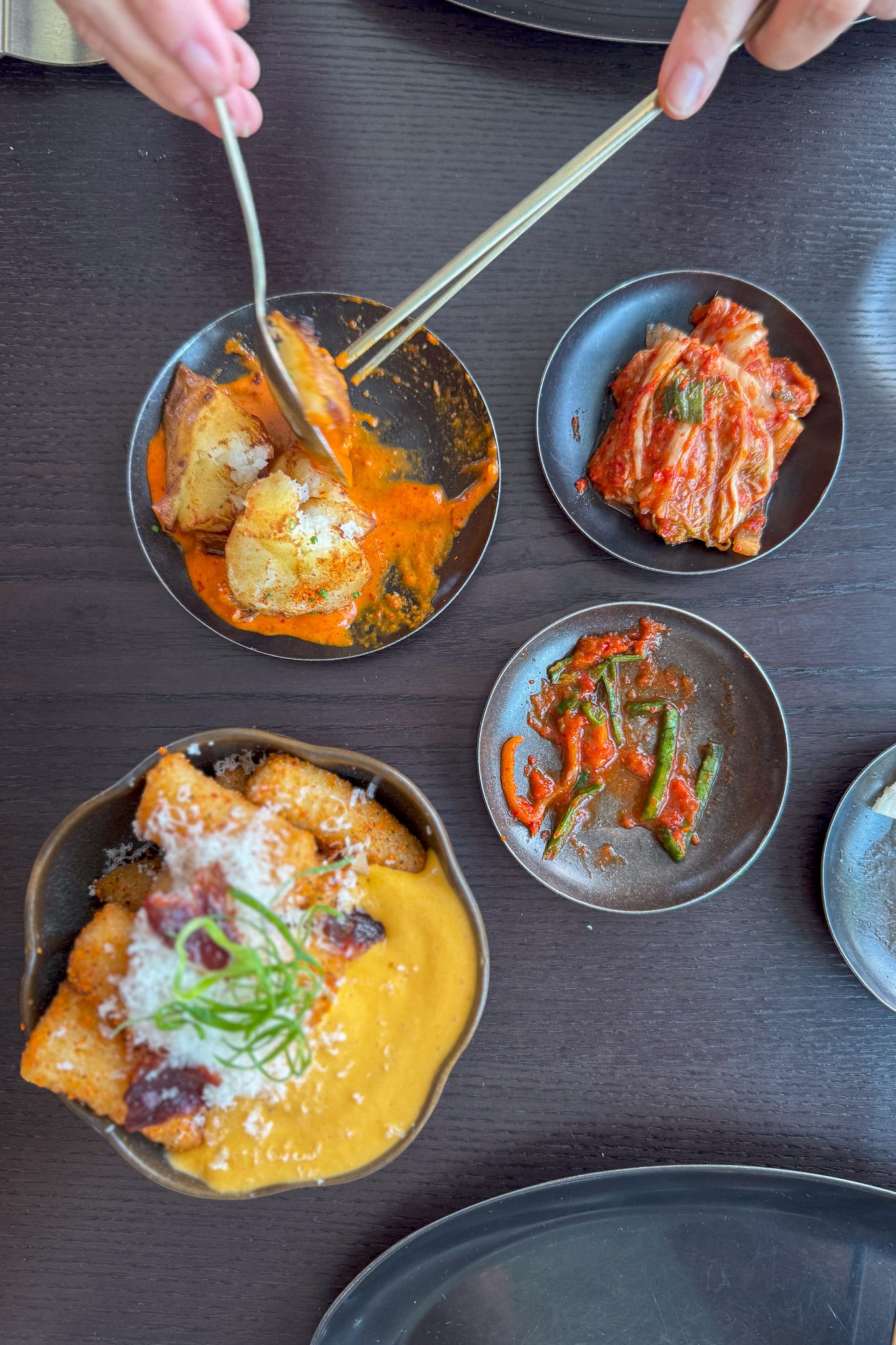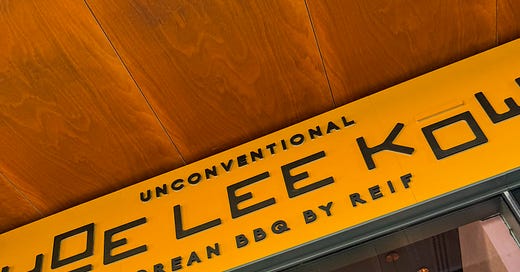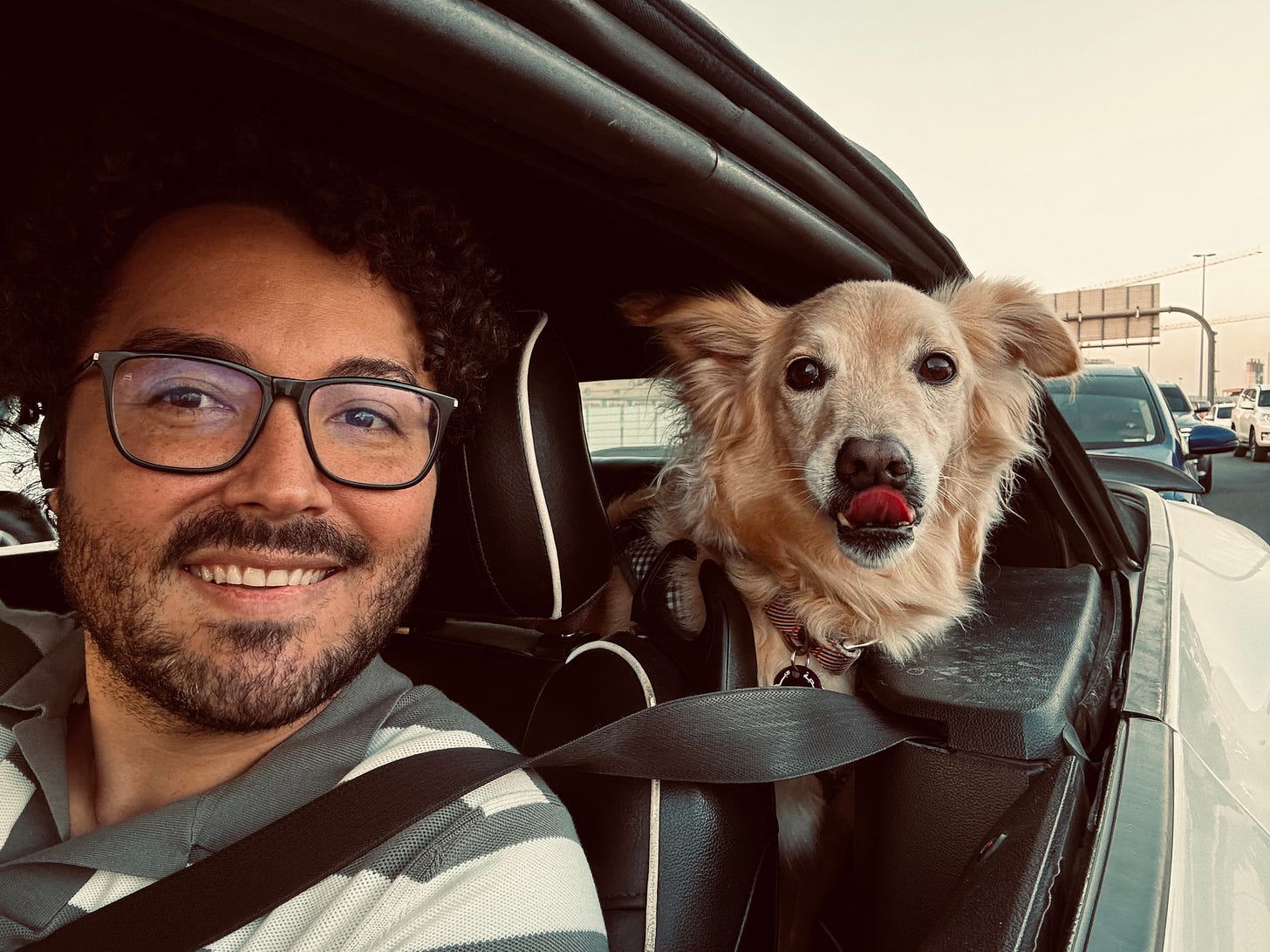Hoe Lee Kow review: "It prises the fingers off this Culinary Class Wars chokehold."
Hoe Lee Kow's modern Korean barbecue safely chaperones me through a mostly unknown world of Korean cuisine one bite at a time.
Culinary Class Wars should come with those performative, grotesque warnings you see on cigarette packs intended to scaremonger you into a tobacco-less existence. Regardless, you would still find me outside in the rain getting my fix on the hour, every hour. Picture that meme of an exhausted Ben Affleck outside his house with a cigarette pinched between his fingers, but now picture me pressed against the window armed with an iPad and a guilty addiction.
1004 Gourmet periodically scratches an itch but my feeble cooking cannot prise the fingers off the chokehold that Netflix’s successful Korean cooking competition show has over me.
Hoe Lee Kow self-proclaimed “unconventional Korean barbecue” opened in Dubai Hills Business Park around July 2023, adding further evidence that Dubai Hills curates Dubai’s most eclectic selection of restaurants.
The indefatigable Reif Othman, a man armoured in accolades, owns “HLK” and his eponymous Reif Kushiyaki within line of sight. Other favourites, DUO Gastrobar, Avatara, Pitfire Pizza and Revelry, are within a stone’s throw.
Hoe Lee Kow is a spacious blush pink and ash grey flanked by an American mustard yellow bar (it’s licensed!). Korean tal masks feature on the right and smart, dark booths on the left. Modular two-seater tables allow for large groups, but the booths are the prized seats. Multiple dinings here confirm the ambience comes together more at night.
Korean barbecues are temptations of the flesh. Meat fests with animal protein in high supply. Here HLK is no different.
The charcoal grill menu is a meat gallery, from Australian Angus fillet to tri-tip, skirt, strip loin and flank (between AED 188 to AED 248). An oyster blade steak glistens with rendered fat accompanied by a trio of sauces: ssamjang, bibimbap sauce and a toasted sesame oil (AED 218). Ssamjang is the sweeter sister of that other Korean stalwart gochujang due to a good pelt of brown sugar. The divine intervention of sesame oil and salt to the beef fat is worth the price point.
No oyster blade this time, as my wife does not eat red meat. She successfully lobbies for the Daegu black cod (AED 218) braised then lacquered in soy served in a split cream sauce dribbled with verdant pools of a herbaceous oil I can't quite make out—possibly spring onion? The cod is served in that liminal place between cooked and raw. It wobbles when it lands on the table. Yum.
Hoe Lee Kow’s menu is not just a flesh fest. The HLK salad refreshes with crab and pear (AED 58). A grilled cauliflower on a bed of Korean pesto and stained in curry salt keeps its bite saved from that insipid overcooking in lesser hands (AED 48). Our favourite, the ttekbokki—a Korean gnocchi-like rice dumpling—feels more Korean American, crusted like a Cheeto, with spoons of maple bacon espuma and a liberal showering of manchego cheese (AED 46). My toothless one-year-old son gums appreciatively on it for 15 minutes. And the white kimchi, and warm potato salad (AED 20 each). I wrestled the Heineken 0 from his suspiciously firm grip (AED 42).
The eagle-eyed may have spotted the prices dropped by a whole digit. Hoe Lee Kow earned a Bib Gourmand as a result. There is plenty on offer in the shallow prices, like the chicken mandu that is not worlds away from Reif Kushiyaki’s gyozas (AED 52). Our son finishes his ttekbokki and we settle up saving the receipt for the free valet outside.
Hoe Lee Kow, Would I Return?
I visit Hoe Lee Kow about two to three times a year; less than expected, largely due to the abundance of choice in Dubai Hills Business Park coupled with my wife’s aversion to red meat, which makes a Korean barbecue spot somewhat of a hard sell at home.
Hoe Lee Kow, Who Should Go?
On hard sells, save for a few openings, Dubai remains largely resilient to the rising tide of Korean culture worldwide—a movement arguably buoyed by K-pop and TV culture (Parasite, Netflix dramas, and now Culinary Class Wars).
HLK sits in a difficult position, in my opinion.
Most dishes I’ve eaten at HLK, I would eat again, so I’m sold on the menu, but I don’t think Dubai is “there” yet on Korean food as other Asian and pan-Asian cuisines dominate the conversation.

Some HLK dishes are Korean-adjacent or post-Korean. Those looking for tradition and orthodoxy should approach with caution. Hoe Lee Kow’s mission to look past a traditional cuisine that’s little known and understood in Dubai may not help. This may explain some of the mixed reception around Hoe Lee Kow.
But who should come here? Those like me for whom such frivolities are meaningless, the Korean food curious, Dubai Hills residents and anyone in the throngs of villas between Al Khail and Al Qudra.
Hoe Lee Kow, Building 4, Dubai Hills Business Park, Dubai, United Arab Emirates.
Liam is a restaurant critic, food and travel writer based in the Middle East. He owns EatGoSee and contributes to other publications. You can follow Liam here on Substack, Instagram or Threads.












Really enjoyed dining here, the one time I was there. Very relaxed and the food like you said is free from any regiment so it feels off the hook.
I'm glad they've come along. My first visit was a very rare miss from Reif, and I haven't been inspired to return.